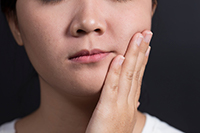Suffice it to say that not all gum is harmful to your teeth. The secret is in chewing sugarless free gum.
What Causes Cavities
Cavities come about as a result of a combination of factors. Bacteria in the mouth, too much sugar intake, and failure to brush every day are a few of the factors. Cavities are common across all ages. If tooth decay is left untreated it may result in tooth or teeth loss.
Stimulation Of Saliva
Chewing gums stimulate the salivary glands to produce more saliva in the mouth. Saliva neutralizes the acid in the mouth that comes about after the breakdown of sugars. Acid has a harmful effect on the teeth' enamel. It corrodes and demineralizes the enamel and thus rendering it weak. However, with sufficient saliva in the mouth, the oral cavity stays hydrated and free of harmful bacteria. In this regard, then we can say that chewing gum does help prevent cavities.
According to the American Dental Association, chewing gum immediately after meals is preferred. This is because it is the perfect opportunity to clean away food debris before they get stuck in between the teeth. In case you are not able to rinse your mouth with water after meals, chewing sugarless gum for a few minutes after eating is a wise alternative.
According to the American Dental Association, chewing gum immediately after meals is preferred. This is because it is the perfect opportunity to clean away food debris before they get stuck in between the teeth. In case you are not able to rinse your mouth with water after meals, chewing sugarless gum for a few minutes after eating is a wise alternative.
Tooth Remineralization
The supply of nutrients to the teeth is through the saliva and the blood vessels in the nerves and pulp. When saliva is more stimulated, the nutrient supply automatically rises. Saliva holds minerals such as phosphate and calcium both of which are key to healthy teeth and bones. However, the emphasis here is on the fact that it needs to be sugarless gum. It is not recommended to chew more than fifteen minutes a day. Prolonged chewing adds pressure to the jawbone. This may result in pain and jaw misalignment. Chewing gum should not replace brushing and flossing the teeth daily. For more tips on the best dental care practices, feel free to sign up with us today.

